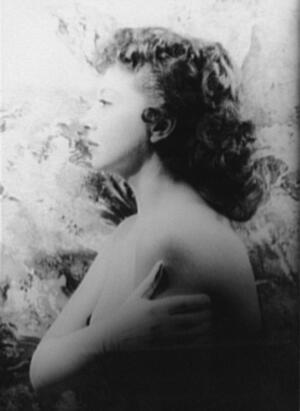Debut of Beverly Sills at the Metropolitan Opera
The New York Times reported that although the Metropolitan Opera's staging of The Siege of Corinth was impressive, "everything ... was dwarfed by the presence of Miss [Beverly] Sills in her long-delayed and long-awaited Metropolitan debut" on April 7, 1975. The review went on to praise Sills as "beautiful to look at, graceful in movement, authoritative in style." The coloratura-voiced singer – and her fans – had waited a long time for this event.
Born in 1929 in Brooklyn, Sills had been singing in public since the age of four, when she appeared on the Uncle Bob's Rainbow Hour radio show. She began her formal musical training at age nine, under the tutelage of Estelle Liebling, who would remain her teacher until 1970. By the time she began studying with Liebling, Sills reportedly had memorized twenty-two operatic arias.
Although her father wanted her to go to college, Sills left school at sixteen to tour with a Gilbert and Sullivan repertory company. Her grand opera debut came in 1947, when she played the Spanish gypsy Frasquita in Bizet's Carmen, with the Philadelphia Civic Opera. Though Sills had parts with many second-tier companies, she found no permanent position until she joined the New York City Opera Company (NYCO) in 1955. Although the NYCO was considered the city's "second" opera company, inferior to the Metropolitan, Sills's voice and acting ability brought the company new success and prestige. For the next two decades, with interruptions for the births of her two children, Sills was the NYCO's prima donna, performing a variety of roles, including some particularly unusual and difficult ones.
In 1975, Sills finally got the chance to sing at the city's premier opera house, when she sang the role of Pamira in The Siege of Corinth. She sang at the Met several times over the next few years, but retired from the stage in 1980. Her farewell gala was attended by two thousand fans at Lincoln Center and televised nationwide on PBS.
The year before her final performance, Sills took on a new role, as director of the NYCO. The first woman and the first performer to fill that job, Sills ran the company for the next decade. Her success as a fundraiser and public relations spokesperson enabled the Company to eliminate its debt. She also introduced innovations such as supertitles in English, enabling more people to enjoy opera. In addition, she emphasized casting American singers and staging American operas.
During her years at the helm of the NYCO, Sills also became a nationally-known spokesperson for the arts. She brought opera to a broader public, substituting on occasion for Johnny Carson as guest host of the Tonight Show and appearing in numerous specials including one called "Sills and Burnett at the Met" which was broadcast on Thanksgiving in 1976. Music critic Anthony Tommasini in the New York Times has described her as "a media natural who demystified the performing arts for average Americans."
Sills was awarded the Presidential Medal of Freedom in 1980. When Sills left the NYCO, it was to become chair of the Lincoln Center board, where she was again the first woman and the first performer to hold the position. After retiring from Lincoln Center, Sills became chair of the board at the Metropolitan Opera in 2002, retiring from that post on January 25, 2005. Sills also served as longtime chair of the board of the March of Dimes.
Beverly Sills died of lung cancer on July 2, 2007.
Sources: Jewish Women in America: An Historical Encyclopedia, pp. 1252-1256; New York Times, April 8, 1975, March 20, 2005, July 3, 2007; Beverly Sills, Beverly: An Autobiography (New York, 1987); http://www.biography.com/people/beverly-sills-9483761.



